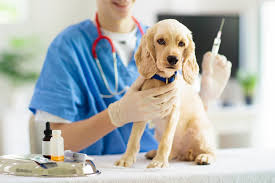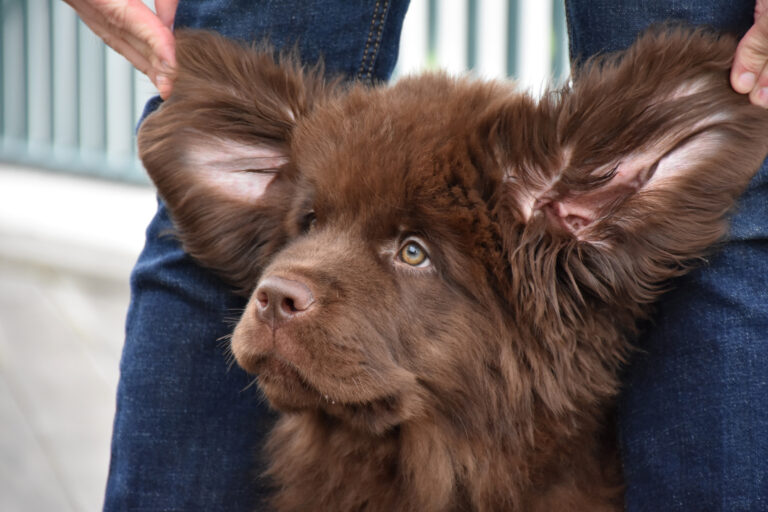Do Kennels Accept Dogs That You Yourself Vaccinated?

Do Kennels Accept Dogs That You Yourself Vaccinated?
When preparing to leave your furry friend in a kennel, one of the most common questions pet owners have is: do kennels accept dogs that you yourself vaccinated? It’s important to understand kennel policies surrounding vaccinations, as they can differ depending on various factors, such as the facility’s standards and the health regulations of the area. This article will explore everything you need to know about kennel vaccination requirements and whether they accept dogs vaccinated by their owners.
Heading 1. Understanding Kennel Vaccination Requirements
Most kennels have strict guidelines in place when it comes to vaccinations. These rules are in place to protect the health and safety of all dogs staying at the facility. Vaccinations help prevent the spread of diseases that could potentially harm your dog and others at the kennel. The most common vaccines required by kennels include:
Rabies: A crucial vaccine required by law in many places.
Distemper: Protects against a contagious viral infection.
Parvovirus: Prevents a highly contagious virus that can be fatal.
Bordetella (Kennel Cough): Essential for dogs that will be interacting with others in close quarters.
Leptospirosis: A vaccine that prevents bacterial infections, though not all kennels require it.
Do Kennels Accept Dogs That You Yourself Vaccinated?
Now, let’s address the main question: do kennels accept dogs that you yourself vaccinated? The short answer is yes, but with some caveats. Most kennels require proof of vaccination, regardless of whether you or a veterinarian administered the shots.
While some pet owners may be comfortable administering certain vaccinations themselves, most kennels won’t accept vaccinations administered by owners without proper documentation or verification. This is because:
Accuracy and Dosage Concerns: It can be difficult for non-professionals to know the exact dosage and technique for administering vaccines, which might result in ineffective or incorrect vaccinations.
Verification of Records: Kennels often request vaccination records from a licensed veterinarian. These records are typically more reliable and standardized compared to those from individual pet owners.
Health and Safety Standards: Kennels adhere to health and safety standards to protect all animals under their care. This includes verifying that vaccinations are up-to-date and administered by a licensed professional to ensure that the dog is fully protected.
Therefore, while you can vaccinate your dog at home, be prepared to show proof that the vaccinations were properly administered, and in most cases, your dog’s vaccination records will need to be signed or provided by a licensed vet.
Common Kennel Policies on Vaccination
Kennels have specific policies for accepting dogs, and vaccination records are a major part of these policies. Most facilities will require:
A Completed Health Record: This includes details of all vaccinations your dog has received, including dates and the names of the administering veterinarian.
A Recent Vet Check-Up: Many kennels will require that your dog be examined by a vet before boarding to ensure they are healthy and not carrying any contagious diseases.
Vaccination Time Frames: Some kennels may only accept dogs whose vaccinations were given within a certain time frame (e.g., the past year or so). Make sure your pet’s vaccines are current and within the kennel’s specified range.
Proof of Vaccination: This is often the most important aspect. Kennels require a written record or certificate of vaccinations, typically signed by a licensed vet.
Why Vaccinations Are So Important for Kennels
Vaccinations are vital for several reasons, especially in kennel environments. Since dogs are often housed together in close quarters, a contagious disease can spread quickly if proper precautions aren’t in place. Here are a few reasons why vaccinations are crucial:
Preventing Disease Outbreaks: Kennels house multiple dogs, and diseases like kennel cough (Bordetella) or parvovirus can spread rapidly. Vaccinations significantly reduce the chances of outbreaks.
Protecting Vulnerable Dogs: Puppies, senior dogs, and dogs with compromised immune systems are more susceptible to disease. Ensuring all dogs are vaccinated helps protect these vulnerable pets from serious illness.
Peace of Mind for All Pet Owners: Knowing that all dogs in a kennel have been vaccinated offers peace of mind to pet owners, ensuring that their dog isn’t exposed to potentially harmful diseases.
Alternatives to Kennels: Home Care Options
If you’re concerned about whether kennels accept dogs that you yourself vaccinated, or if you’re simply looking for alternatives, home-based pet sitters or pet boarding services might be a solution. Many pet sitters or home-based services are more flexible about vaccination requirements, though it’s always a good idea to discuss these details with the service provider before committing.
Additionally, some private pet care services might accept proof of vaccinations from owners themselves, though they may still ask for a veterinary check-up to ensure your pet is healthy.
Tips for Preparing Your Dog for Kennel Boarding
Book Early: Some kennels require advanced reservations, especially during peak travel seasons. Make sure to book ahead.
Vaccination Documentation: Ensure that you have an updated vaccination record ready for the kennel.
Health Check: Schedule a visit to the vet for a health check-up, ensuring that your dog is fit for boarding.
Familiarize Your Dog with the Kennel: If possible, visit the kennel with your dog ahead of time to get them acclimated to the new environment.
Conclusion
In conclusion, the question of do kennels accept dogs that you yourself vaccinated largely depends on the facility’s policies and their acceptance of owner-administered vaccines. While some kennels might accept documentation of vaccinations performed by you, most require a professional vet’s certification to ensure accuracy and reliability. Always check with your chosen kennel for their specific requirements, and remember that vaccinations play a key role in keeping all dogs safe and healthy.
Do Kennels Accept Dogs That You Yourself Vaccinated?
When preparing to leave your furry friend in a kennel, one of the most common questions pet owners have is: do kennels accept dogs that you yourself vaccinated? It’s important to understand kennel policies surrounding vaccinations, as they can differ depending on various factors, such as the facility’s standards and the health regulations of the area. This article will explore everything you need to know about kennel vaccination requirements and whether they accept dogs vaccinated by their owners.
Add video
Understanding Kennel Vaccination Requirements
Most kennels have strict guidelines in place when it comes to vaccinations. These rules are in place to protect the health and safety of all dogs staying at the facility. Vaccinations help prevent the spread of diseases that could potentially harm your dog and others at the kennel. The most common vaccines required by kennels include:
Rabies: A crucial vaccine required by law in many places.
Distemper: Protects against a contagious viral infection.
Parvovirus: Prevents a highly contagious virus that can be fatal.
Bordetella (Kennel Cough): Essential for dogs that will be interacting with others in close quarters.
Leptospirosis: A vaccine that prevents bacterial infections, though not all kennels require it.
Do Kennels Accept Dogs That You Yourself Vaccinated?
Now, let’s address the main question: do kennels accept dogs that you yourself vaccinated? The short answer is yes, but with some caveats. Most kennels require proof of vaccination, regardless of whether you or a veterinarian administered the shots.
While some pet owners may be comfortable administering certain vaccinations themselves, most kennels won’t accept vaccinations administered by owners without proper documentation or verification. This is because:
Accuracy and Dosage Concerns: It can be difficult for non-professionals to know the exact dosage and technique for administering vaccines, which might result in ineffective or incorrect vaccinations.
Verification of Records: Kennels often request vaccination records from a licensed veterinarian. These records are typically more reliable and standardized compared to those from individual pet owners.
Health and Safety Standards: Kennels adhere to health and safety standards to protect all animals under their care. This includes verifying that vaccinations are up-to-date and administered by a licensed professional to ensure that the dog is fully protected.
Therefore, while you can vaccinate your dog at home, be prepared to show proof that the vaccinations were properly administered, and in most cases, your dog’s vaccination records will need to be signed or provided by a licensed vet.
Common Kennel Policies on Vaccination
Kennels have specific policies for accepting dogs, and vaccination records are a major part of these policies. Most facilities will require:
A Completed Health Record: This includes details of all vaccinations your dog has received, including dates and the names of the administering veterinarian.
A Recent Vet Check-Up: Many kennels will require that your dog be examined by a vet before boarding to ensure they are healthy and not carrying any contagious diseases.
Vaccination Time Frames: Some kennels may only accept dogs whose vaccinations were given within a certain time frame (e.g., the past year or so). Make sure your pet’s vaccines are current and within the kennel’s specified range.
Proof of Vaccination: This is often the most important aspect. Kennels require a written record or certificate of vaccinations, typically signed by a licensed vet.
Why Vaccinations Are So Important for Kennels
Vaccinations are vital for several reasons, especially in kennel environments. Since dogs are often housed together in close quarters, a contagious disease can spread quickly if proper precautions aren’t in place. Here are a few reasons why vaccinations are crucial:
Preventing Disease Outbreaks: Kennels house multiple dogs, and diseases like kennel cough (Bordetella) or parvovirus can spread rapidly. Vaccinations significantly reduce the chances of outbreaks.
Protecting Vulnerable Dogs: Puppies, senior dogs, and dogs with compromised immune systems are more susceptible to disease. Ensuring all dogs are vaccinated helps protect these vulnerable pets from serious illness.
Peace of Mind for All Pet Owners: Knowing that all dogs in a kennel have been vaccinated offers peace of mind to pet owners, ensuring that their dog isn’t exposed to potentially harmful diseases.
Alternatives to Kennels: Home Care Options
If you’re concerned about whether kennels accept dogs that you yourself vaccinated, or if you’re simply looking for alternatives, home-based pet sitters or pet boarding services might be a solution. Many pet sitters or home-based services are more flexible about vaccination requirements, though it’s always a good idea to discuss these details with the service provider before committing.
Additionally, some private pet care services might accept proof of vaccinations from owners themselves, though they may still ask for a veterinary check-up to ensure your pet is healthy.
Tips for Preparing Your Dog for Kennel Boarding
Book Early: Some kennels require advanced reservations, especially during peak travel seasons. Make sure to book ahead.
Vaccination Documentation: Ensure that you have an updated vaccination record ready for the kennel.
Health Check: Schedule a visit to the vet for a health check-up, ensuring that your dog is fit for boarding.
Familiarize Your Dog with the Kennel: If possible, visit the kennel with your dog ahead of time to get them acclimated to the new environment.
Conclusion
In conclusion, the question of do kennels accept dogs that you yourself vaccinated largely depends on the facility’s policies and their acceptance of owner-administered vaccines. While some kennels might accept documentation of vaccinations performed by you, most require a professional vet’s certification to ensure accuracy and reliability. Always check with your chosen kennel for their specific requirements, and remember that vaccinations play a key role in keeping all dogs safe and healthy.







